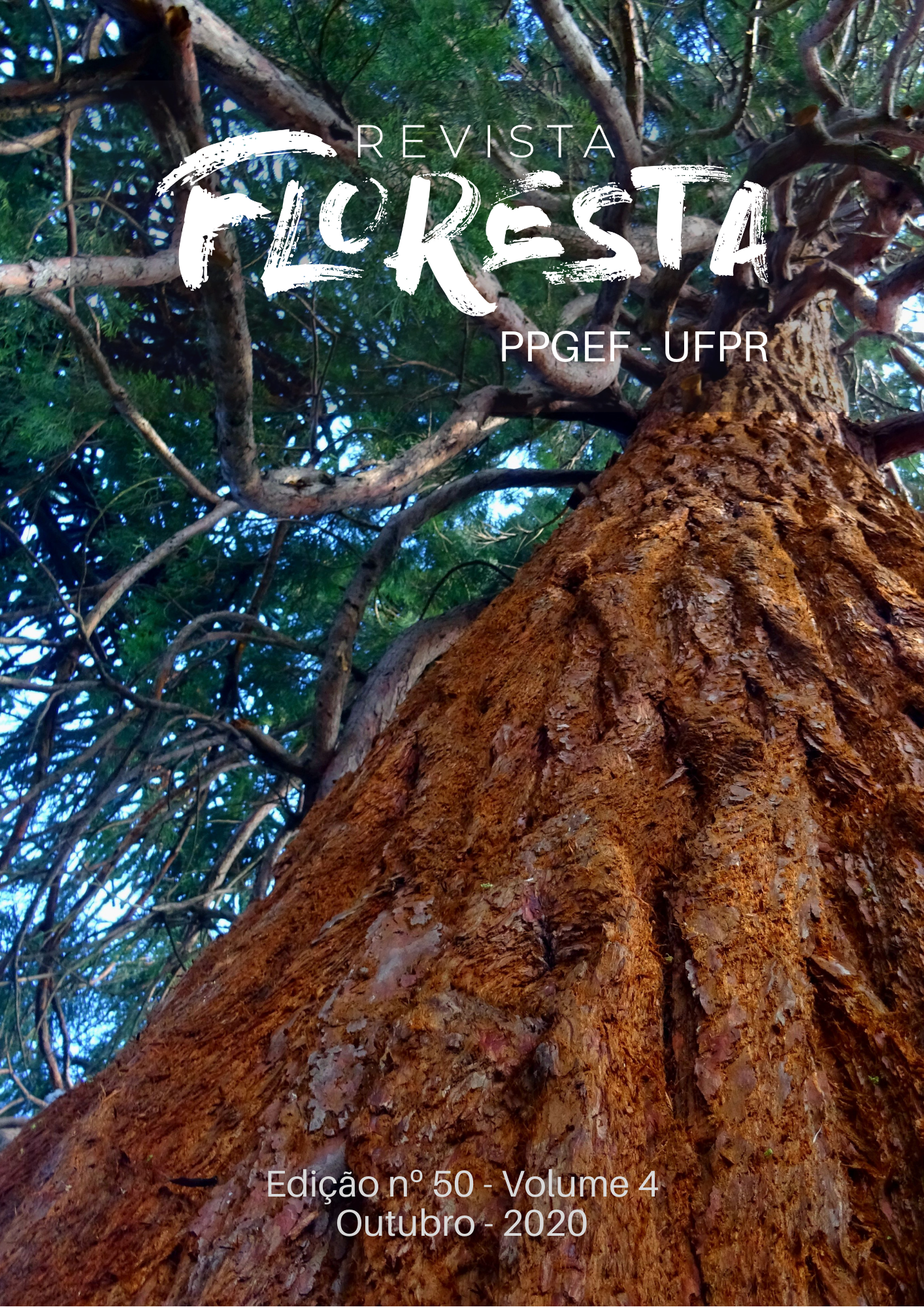EFFECT OF THE FINAL CARBONIZATION TEMPERATURE ON THE QUALITY OF FIVE SPECIES OF CERRADO
DOI:
https://doi.org/10.5380/rf.v50i4.66996Palavras-chave:
Pyrolysis. Charcoal quality. YieldResumo
The objective of the research was to characterize the energetic properties of the charcoal from species from the cerrado sensu stricto, as well as to evaluate the effect of the final carbonization temperature. Five species were selected for study. Ten specimens were obtained from the logs of each species, submitted to two treatments with five replicates each. The basic density of the wood was calculated by the hydrostatic balance method. The charcoal was produced by the pyrolysis process of the wood in a muffle furnace adapted to capture the pyrolignous liquor, in which two heating speeds were used with final temperatures of 500 °C and 550 °C. Through the pyrolysis process, the total gravimetric yield of the coal, yield in condensable gas, and non-condensable gas were obtained. The apparent density, the immediate chemical analysis (ICA) of the charcoal was determined and, finally, its calorific value was calculated. The YC presented acceptable values for the species Terminalia glabrescens (35.43%) and Vatairea macrocarpa (32.59%). The volatile material content of Vatairea macrocarpa (22.53%) presented satisfactory values. Fixed carbon, ash and heat content were also considered acceptable for the species Terminalia glabrescens (74.43%, 0.96% 7457.40 kcal.kg-¹), Vatairea macrocarpa (75.21% 0.55% and 7443.57 kcal.kg-¹) and Xylopia aromatica (74.27%, 0.67% and 7365.56 kcal.kg-¹), presenting high energy potential. The YC, YL and YNNC were influenced by the heating speeds as well as the content of volatile materials. The recommended final carbonization temperature is 550 °C.
Downloads
Publicado
Como Citar
Edição
Seção
Licença
Direitos Autorais para artigos publicados nesta revista são do autor, com direitos de primeira publicação para a revista. Em virtude da aparecerem nesta revista de acesso público, os artigos são de uso gratuito, com atribuições próprias, em aplicações educacionais e não-comerciais.A revista, seguindo a recomendações do movimento Acesso Aberto, proporciona acesso publico a todo o seu conteudo, seguindo o principio de que tornar gratuito o acesso a pesquisas gera um maior intrcambio global de conhecimento.
Conteúdos do periódico licenciados sob uma CC BY-NC-SA 4.0



